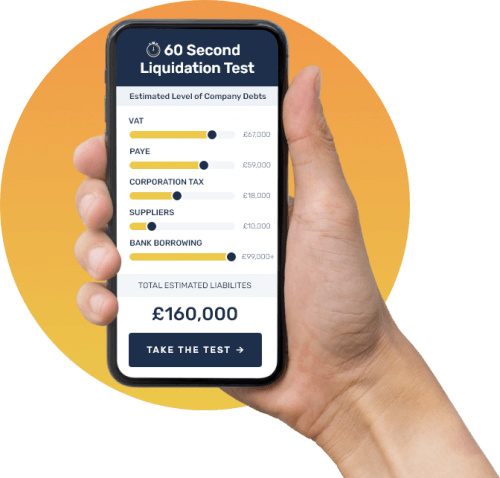Will you get your money back and what other rights do you have?
When a company is liquidated, it’s often those who are owed money by the company (its creditors) that lose out. The directors of the failed company can start afresh, while the creditors are left to count the cost. However, creditors do have rights when a company enters a voluntary or compulsory liquidation procedure. In this article, we’ll discuss what those rights are and how they differ for secured and unsecured creditors.
What are the rights of secured creditors in liquidation?
When a company enters liquidation, the liquidator values and sells its assets before paying the proceeds to the creditors to cover the outstanding debts. A defined hierarchy dictates the order in which the creditors are paid. Its secured creditors, that’s those holding a fixed or floating charge over company assets, are among the first.
The repayment of outstanding debts
A creditor holding a fixed charge has security over a specific business asset, such as property or machinery. When a company defaults or enters liquidation, the creditor can take control of that particular asset and sell it to recoup their money.
The process is different for creditors with a floating charge. They have a charge over certain classes of assets, such as stock, cash and raw materials, which can be sold or moved on in the normal course of business. When the company becomes insolvent, the floating charge ‘crystallises’ and becomes a fixed charge. The creditor will then recover some or all of their money when those assets are sold.
The right to challenge the liquidator’s fee
As well as the right to receive funds from the sale of assets on liquidation, secured creditors can also challenge the liquidator’s remuneration if they believe it is too high.
The liquidator’s fees are the first costs to be paid in a liquidation, even before the secured creditors. The liquidator charges a fee for carrying out their work, such as holding meetings, valuing and selling assets and distributing the funds. The secured creditors can challenge the liquidator’s fee by making a court application.
What are the rights of unsecured creditors in liquidation?
Most of the creditors in a liquidation are unsecured. That means they do not hold any company assets that they can seize and sell if the company fails. Examples include suppliers, landlords, utility providers and HMRC.
Unsecured creditors are the final group in the hierarchy to receive payment when a company is liquidated, but they do have other rights that can help to strengthen their position.
The repayment of outstanding debts
By definition, an insolvent company is one that cannot pay all its debts. That means there is often little or no money left once all the other creditors have been paid. Generally, that results in unsecured creditors receiving a payment that represents so many pence in the pound.
Unsecured creditors that have to write off some or all of their debt are entitled to claim VAT Bad Debt Relief. They can also appeal the liquidator’s decision if they refuse to pay a claim.
The right to claim interest
Unsecured creditors are also entitled to claim interest on the money they are owed up to the date of liquidation. For this to be permitted, you must have provided notice of your intention to charge interest on late payments in the original contract or a payment reminder.
The return of goods
As a creditor, if you can prove the company being liquidated has goods that belong to you that it has not paid for, you can make a claim for their return.
The right to appoint a liquidator
In the case of a Creditors’ Voluntary Liquidation, the company directors will ordinarily appoint an Insolvency Practitioner to act as the liquidator. However, the creditors can propose the appointment of a different liquidator if they are not happy with their choice.
The right to form a liquidation committee
In compulsory and voluntary liquidation proceedings, the unsecured creditors can form a liquidation committee to oversee the liquidation process on behalf of the unsecured creditors as a whole. The committee must consist of between three and five creditors and has a range of rights and duties, including:
- Approving the liquidator’s remuneration and expenses
- Receiving reports on the progress of the liquidation at least every six months
- Being able to request a meeting with the liquidator at any stage
Committee members are not paid for their role but can claim reasonable expenses.
The right to call in-person meetings
Changes to the law mean that liquidators no longer have to convene in-person creditor meetings as a matter of course. Instead, they can send notices and proposals electronically. However, 10% of creditors by number or value, or 10 individual creditors, can request a physical meeting where the liquidator must answer reasonable questions.
Need advice?
If you’re unsure of your rights as a creditor or run a struggling company and want advice on liquidation, we can help. Contact our liquidation specialists for a free, same-day consultation or arrange a no-obligation meeting at one of our 100+ UK offices.
If you are considering liquidation for your limited company, taking advice from a licensed insolvency practitioner can help you understand your options.
Take our 60 second test and find out







































